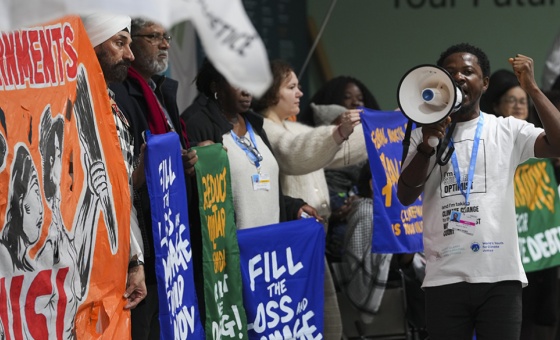This is the last article you can read this month
You can read more article this month
You can read more articles this month
Sorry your limit is up for this month
Reset on:
Please help support the Morning Star by subscribing here
THOUSANDS of prisoners are to be released earlier than planned as the government attempts to avert a “collapse” of the prison system.
Justice Secretary Shabana Mahmood warned today that without immediate action to address overcrowding prisons would run out of space within weeks, leading to “a total breakdown of law and order.”
She said prisons were “on the point of collapse” with barely 700 places left in the adult male estate and jails operating at 99 per cent capacity since the start of 2023.
If prisons ran out of cell space, she warned, the country faced the prospect of “van-loads of dangerous people circling the country with nowhere to go.”
The plans would see a temporary reduction in the proportion of the sentence many prisoners must serve in jail from 50 per cent to, in some cases, 40 per cent.
This would not apply to violent offenders serving more than four years, sex offenders or those in prison for crimes connected to domestic abuse.
It is expected to come into force in September.
Howard League for Penal Reform director of campaigns Andrew Neilson said it was “absolutely the right decision.”
“This is not simply an emergency to do with capacity, although that is driving the immediate need for action,” he said.
“Our violent and overcrowded prisons are holding the country back by failing to tackle the underlying causes of crime. If anything, they make reoffending far more likely.
Prison Reform Trust chief executive Pia Sinha said the decision would prevent dangerous levels of overcrowding and the criminal justice system “grinding to a halt.”
Stephanie Needleman of law reform organisation Justice said it was an “important first step” in relieving the “chronic prison crisis which fuels crime, wrecks lives and costs billions.
“However, the government must adopt deeper changes to make sure this never happens again,” she said.
“The best way of keeping people safe and saving money is to build people real routes away from crime by investing in mental health, youth and addiction services and ending the use of short sentences, which do more harm than good.”
Revolving Doors chief executive Pavan Dhaliwal said the measures were necessary, but highlighted a “wider systemic challenge” that Ms Mahmood must tackle, including diverting people with unmet health and social needs out of the criminal justice system.
The aunt of Zara Aleena, who was murdered by a man who had been out of prison on licence for nine days, warned that releasing inmates early could be a “dangerous gamble with public safety” if the probation service was unable to cope.
Farah Naz told BBC Breakfast her niece was killed by “a man that was emboldened because he was not supervised, he was not assessed, he was constantly allowed to do what he wanted to do.”
Law Society of England and Wales president Nick Emmerson said it will be important to “ensure that appropriate safeguards are in place so that any risks to the public are minimised.”










